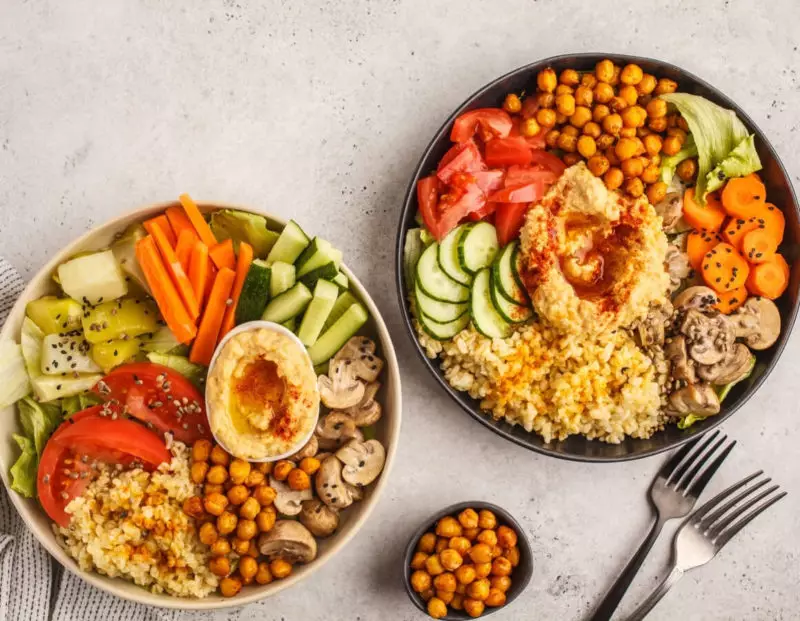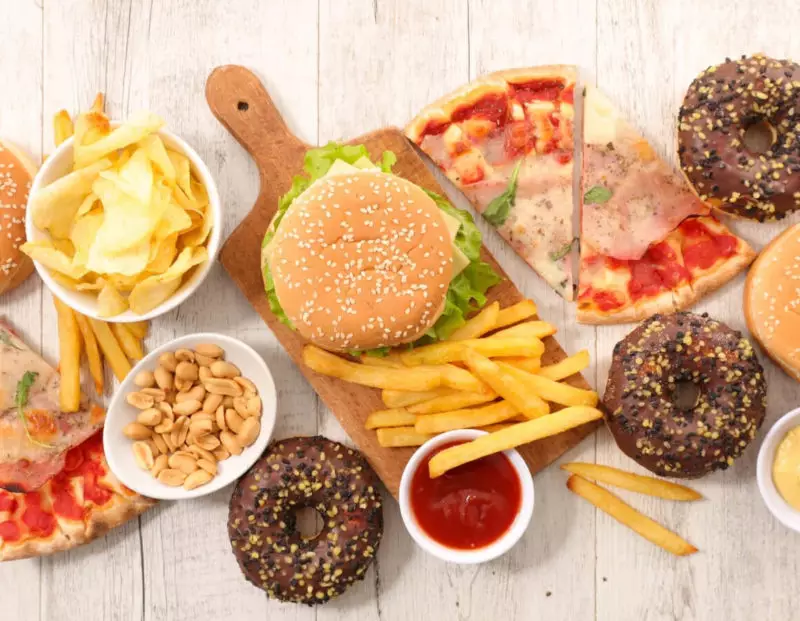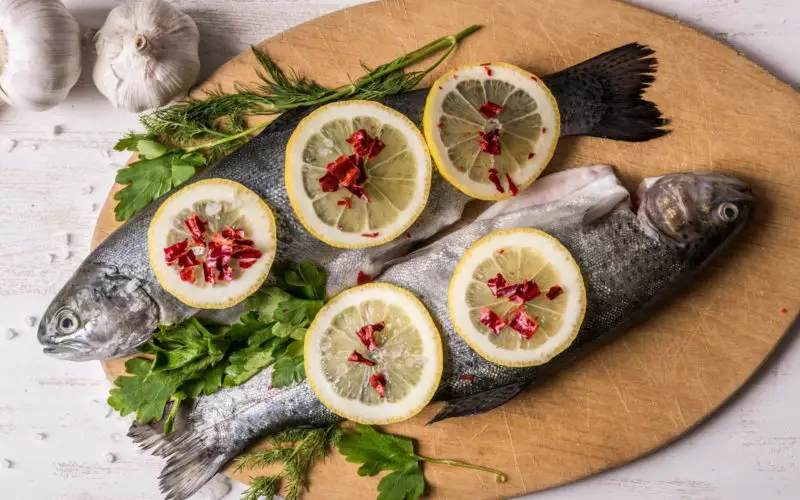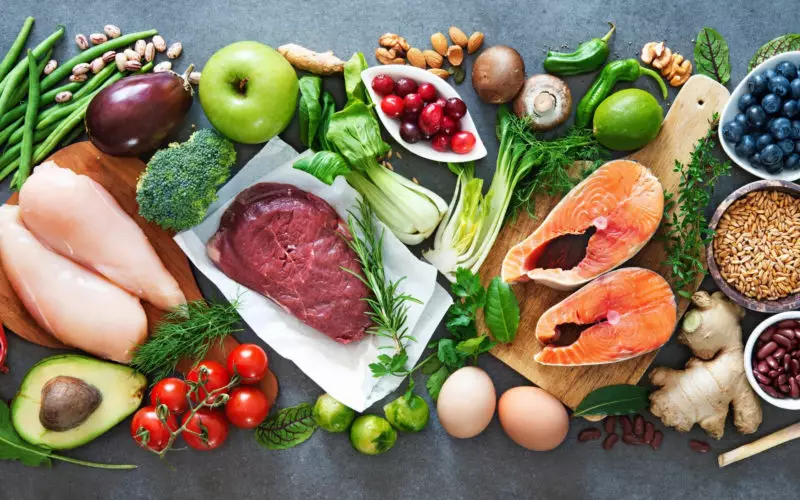
One important rule of the Mediterranean diet is to eat processed, packaged, and fast food in moderation. This is because often fast food is high in refined sugars, saturated and trans fats, and sodium (salt.)
If you are on a Mediterranean diet but still want to eat out, this article will give you some tips on what restaurant and fast foods to choose that comply with the Mediterranean diet food list.
Let’s get started!
Mediterranean food list
The Mediterranean diet is considered a type of plant-based diet, similar to flexitarian and pescatarian diets. It encourages the consumption of whole foods rich in fiber, antioxidants, healthy fats, and Omega-3 and 6 fatty acids. Plant proteins are an important part of the Mediterranean diet, as they are used as a substitute for animal protein foods. [1]
Here is a list of the foods to include in your Mediterranean diet meals:
- All fruits (fresh, frozen, and dried)
- All vegetables (fresh, frozen, dried, and canned)
- Whole grains (brown rice, whole grain pasta, bread, crackers, cereals, oats, etc.)
- Legumes (lentils, beans, chickpeas, peas)
- Soy (edamame, tempeh, tofu, milk, etc.)
- Nuts and seeds (e.g., chia, pumpkin, sesame seeds, macadamia, almonds, cashews, hazelnuts, walnuts, peanuts, pistachios, pine seeds, etc.)
- Herbs and spices (e.g., pepper, oregano, turmeric, paprika, chili, basil, rosemary, bay leaf, cumin)
- Olive oil as primary cooking oil and some other vegetable oils (sesame, walnut, canola, sunflower, avocado oil)
- Fish and seafood (fatty fish like salmon, mackerel, anchovies, and sardines is recommended at least twice weekly)
- White poultry meat and eggs (small portions a few times weekly)
- Low-fat dairy foods (small portions a few times a week)
- Lean red meat (limited to a few times per month)

What not to eat on Mediterranean diet
The Mediterranean diet does not strictly forbid any food groups. That being said, the following foods should be eaten only in moderation if you want to best results from the Mediterranean diet:
- Processed foods like sweets, cakes, cookies, chips, flavored popcorn, packaged savory and sweet snacks, microwave/ready meals, breakfast cereals, energy drinks, ready dressings/sauces like ranch, BBQ, and honey mustard, etc.
- Foods high in refined sugars: chocolate, cookies, cakes, candy, pastries, sweets, ice cream, muffins, brownies, packaged sauces and salad dressings, etc.
- Foods high in salt: fast foods, ready soup, ready meals, burgers, fries, onion rings, processed and deli meat, ready salad dressings and sauces, etc.
- Processed, lunch and deli meat: cured, smoked, and salted meat, sausages, cold cuts of meat, ham, bacon, pancetta, salami, pork rinds, etc.
- Fatty cuts of meat: Ribeye steak, T-bone steak, Porterhouse steak, Skirt steak, tenderloin, ribs, chicken thighs, pork shoulder/belly, etc.
- Saturated fats for cooking: beef fat, butter, coconut oil, palm oil, cocoa butter, margarine, shortening, etc.
- Deep-fried foods: fries, onion rings, nuggets, egg rolls, deep-fried vegetables, meat, fish, etc.
If you cook at home, it’s important to try substituting saturated fats with unsaturated ones.

Mediterranean diet-approved fast food options
Eating out can be difficult if you are on the Mediterranean diet. Especially if you’re a fan of fast foods, most meal options do not comply with Mediterranean diet foods list. This way, you can either eat fast food less often, or find fast foods that are (partially) compliant with the Mediterranean diet rules.
Here are some tips that can help you choose Mediterranean diet-approved fast food options:
-
Choose foods with low saturated fat content. Restaurants and food chains sometimes publish the nutritional value of their meals. Keep in mind that the recommended daily intake of saturated fat is up to 13 grams for a 2000 calorie diet. [2] To keep your diet Mediterranean style, plan your meal according to this recommendation.
-
Choose foods cooked with olive oil instead of butter or animal fat. Also, you can ask for a salad with olive oil, salt, and vinegar instead of ready salad dressing.
-
Choose non-deep-fried foods. Aim for baked, roasted, sauteed, stir-fried, boiled, or grilled foods. This can help you eat less saturated and refined oils.
-
Choose fish, seafood, and white poultry meat (like chicken breast) over red meat (pork, lamb, beef) and dark poultry meat.
-
Choose whole-grain foods whenever possible: brown rice instead of white rice, whole grain pasta instead of regular pasta, whole-grain pizza dough instead of regular dough, etc.
-
Order additional veggies or a side salad to your dish (fries do not count). This can help you eat more fiber, vitamins, and minerals.
The Mediterranean diet does not set specific goals for calorie intake and portion sizes, so calorie counting is not needed.








